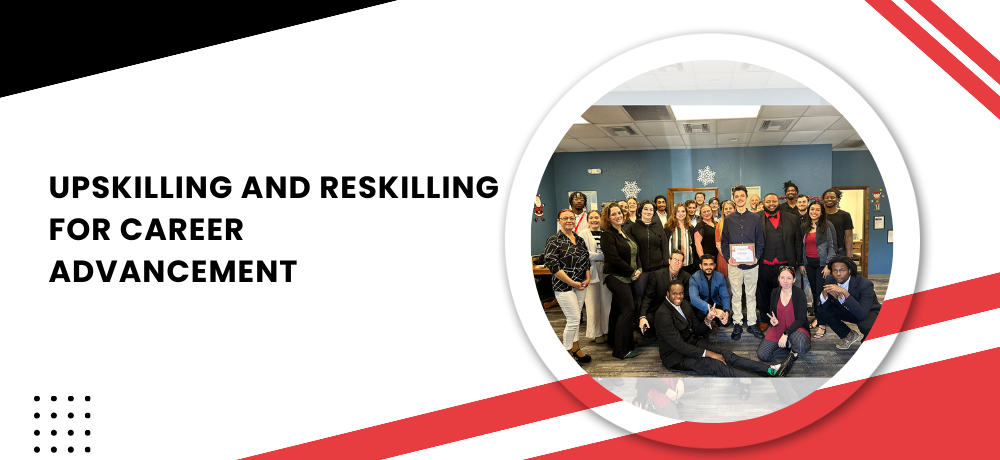In the dynamic landscape of the modern workforce, the need for continuous learning and adaptation is paramount. Technological advancements, evolving job requirements, and industry transformations necessitate individuals to proactively upskill and reskill to stay relevant and advance in their careers. Upskilling involves enhancing existing skills, while reskilling entails acquiring entirely new skills. Both are crucial strategies for career growth, enabling professionals to navigate changes in their industries and seize emerging opportunities. This article explores the significance of upskilling and reskilling in today’s competitive job market, emphasizing the importance of lifelong learning for sustained career advancement.
Adaptation to Technological Advancements:
Rapid technological progress is reshaping industries, rendering some skills obsolete while creating demand for new ones. Upskilling and reskilling are essential for professionals to adapt to emerging technologies like artificial intelligence, data analytics, and automation. By acquiring expertise in these areas, individuals not only future-proof their careers but also position themselves as valuable assets to organizations at the forefront of innovation.
Increased Employability and Marketability:
Employers today seek candidates with diverse skill sets and a willingness to learn. Upskilling and reskilling not only make professionals more attractive to potential employers but also enhance their overall employability. By staying current with industry trends and acquiring in-demand skills, individuals can differentiate themselves in a competitive job market, opening up new career opportunities and possibilities.
Flexibility in Career Transitions:
The traditional career trajectory is evolving, with professionals increasingly switching industries or roles. Upskilling and reskilling provide the flexibility needed for successful career transitions. Professionals can pivot to new sectors or roles with confidence, armed with the relevant skills and knowledge. This adaptability not only mitigates the impact of economic downturns but also empowers individuals to pursue their passion and interests throughout their careers.
Enhanced Productivity and Job Satisfaction:
Continuous learning contributes to personal and professional growth, leading to increased job satisfaction. Upskilling and reskilling not only improve performance in current roles but also open avenues for career progression. As individuals become more proficient in their roles, they often experience a boost in confidence and job satisfaction, creating a positive cycle of motivation and productivity.
Future Leadership and Innovation:
Leadership roles require a holistic skill set that combines domain expertise with strategic thinking and innovation. Upskilling and reskilling lay the foundation for individuals to ascend to leadership positions. By cultivating a mindset of continuous learning and staying abreast of industry trends, professionals position themselves to lead teams, drive innovation, and contribute to the long-term success of their organizations.
Upskilling and reskilling are indispensable strategies for navigating the evolving career landscape. Embracing a commitment to lifelong learning not only ensures career relevance but also fosters personal development, job satisfaction, and leadership potential. As industries continue to transform, individuals who proactively invest in their skills will find themselves well-equipped to thrive in the dynamic and competitive world of work. Ready to take your career to new heights?
At NCOs Enterprise Inc., we are not just a company; we are a community of professionals dedicated to helping you realize your full potential in sales. To learn more about the opportunities we offer, please click here. To take the first step toward an exciting career with us, send your resume and cover letter to [email protected].

